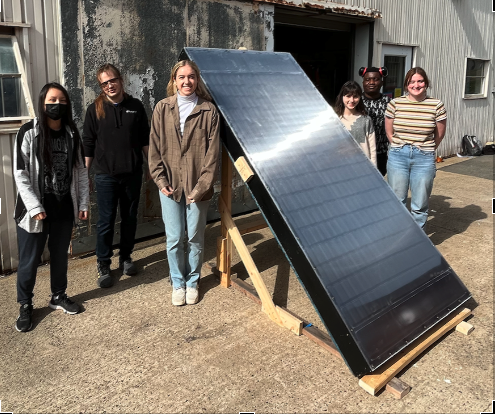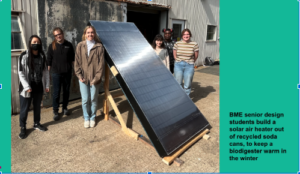
Location of Work: Northeastern US and University of Massachusetts - Amherst
Authors:
Relevant Sector/Industry: Academic/University
Site: https://www.umass.edu/stockbridge/umass-student-farm
Open to Collaboration: Yes
Abstract
The climate crisis, defined by rapid and ongoing changes in global climates, is caused in part by the release of large amounts of greenhouse gases into the atmosphere. Organic waste has played a significant role in the climate crisis, with food production accounting for 26% of global greenhouse gas emissions [1]. Biodigesters provide a sustainable solution for managing organic waste while generating renewable energy and nutrient-rich fertilizer. Biogas, the gas produced by the anaerobic digestion of organic matter, is a sustainable, carbon-neutral energy source for cooking on gas stoves or converting to electric energy generators. However, temperature is a key limiting factor for the application of small-scale biodigesters in the Northeastern region of the US. The methanogenic bacteria responsible for breaking down organic matter and producing biogas operate optimally at temperatures between 30-40°C. Below this range, biogas production can slow down and halt. Therefore, developing a method of winterizing small-scale biodigesters for its application in the Northeast US climate would provide individual users with a renewable energy source and ecological waste management system year-round. Here, we developed a biodigester heating system by utilizing passive solar thermal technology (figure 1). A solar air heater constructed of aluminum soda can channels collect and concentrate solar thermal energy, and this energy provides heat to a biodigester through the continuous exchange of heat from air. A solar-powered fan pushes air circularly in a closed system through the solar air heater and an insulation box that houses a 32-gallon biodigester via insulated air ducts

Biodigester Size used: Small (5-20 cubic meters)